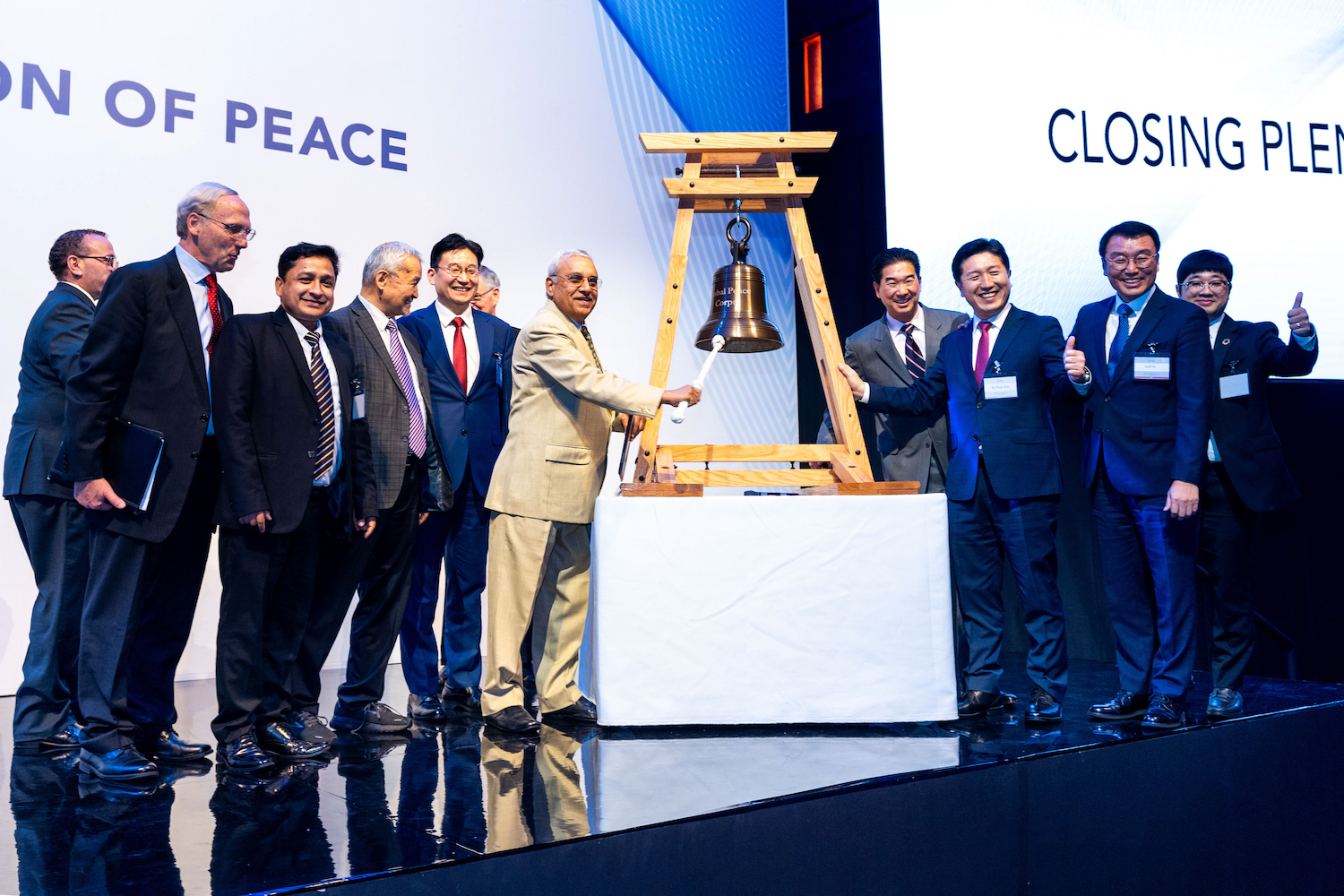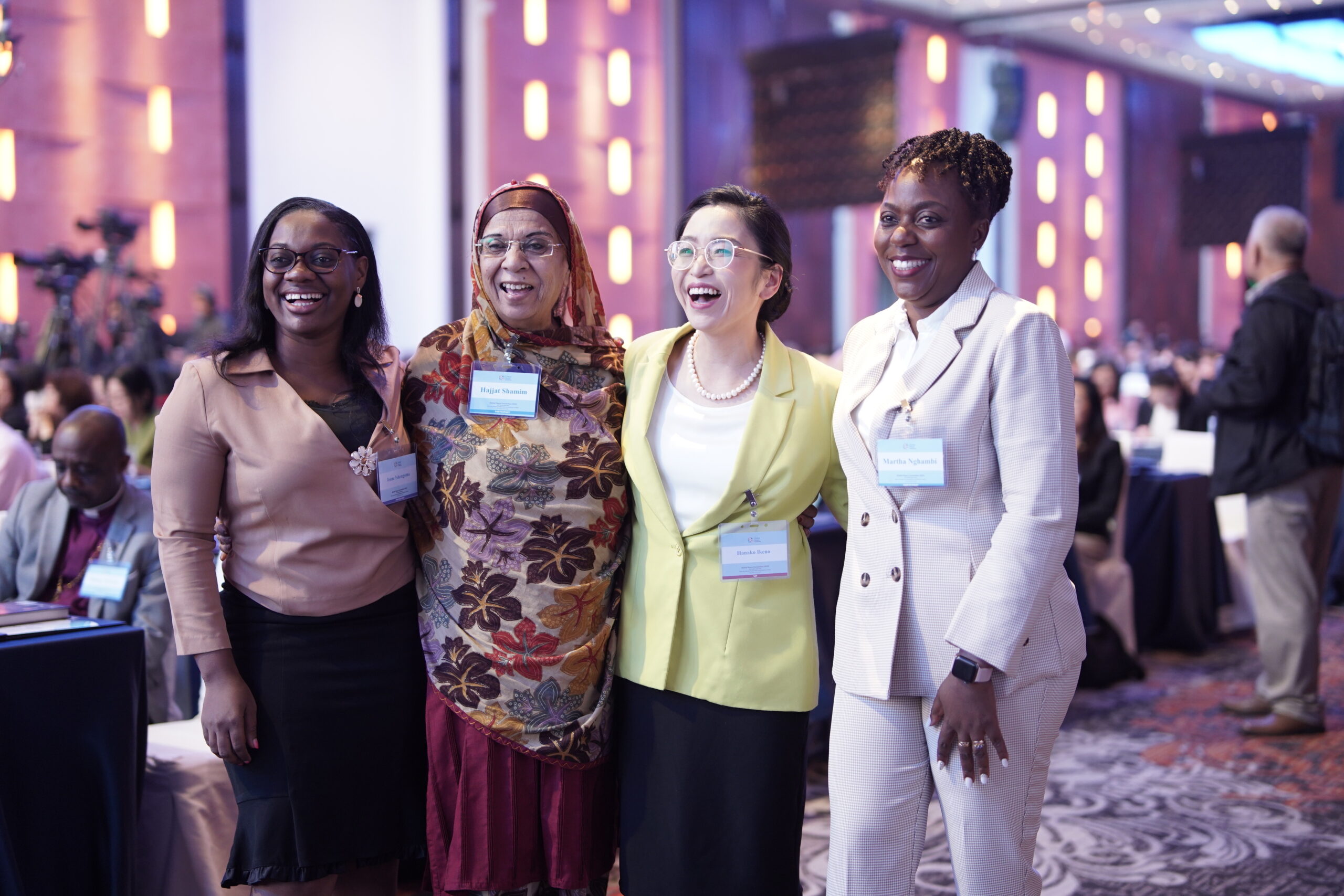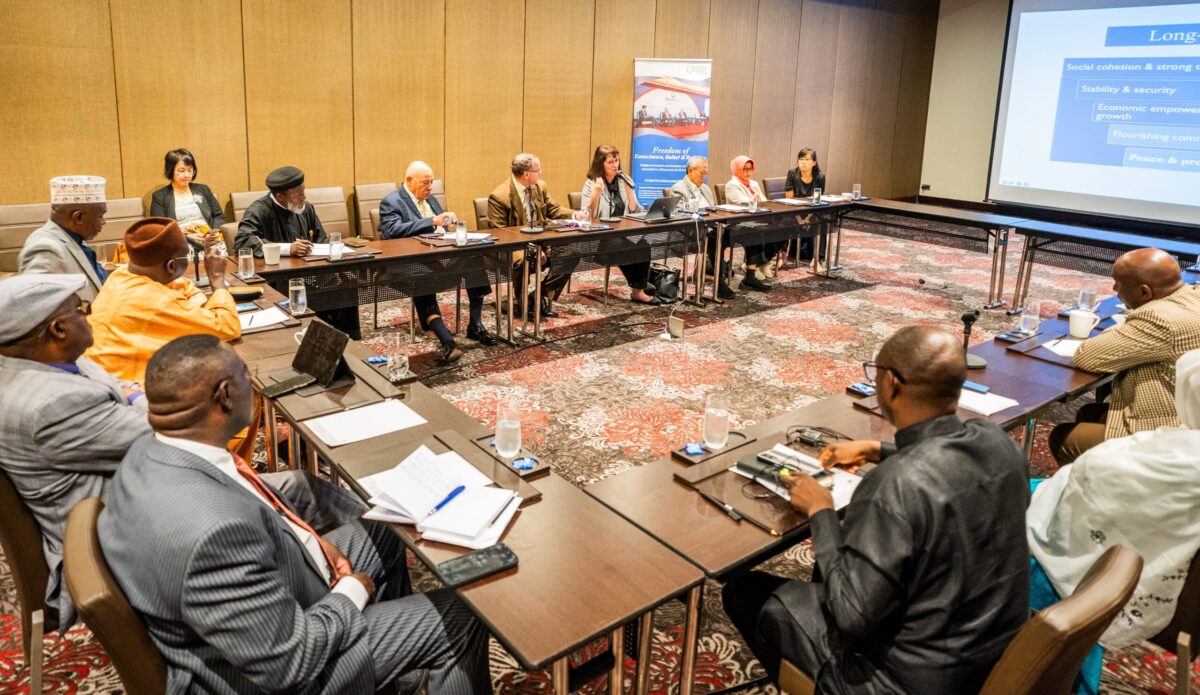Peace and Security Track Examines the Stabilizing Presence of the UN Command and the Role of Faith Traditions and Civil Society in Advancing Reunification
The Global Peace Foundation has recognized that any enduring peace or sustainable development is contingent on security, political stability, and a social infrastructure that provides for basic human needs. Three virtual forums hosted during the 2023 Global Peace Convention, “One Family under God: Vision for National Transformation and a Civilization of Peace,” addressed Peace and Security and the urgent priority of building domestic and international support for a free and unified Korea.
The first forum in the Peace and Security Track, “United Nations Command and United Nations Support for a Free and Unified Korea,” convened on November 27. Among the founding principles of the UN Charter, adopted in 1945, were “to save succeeding generations from the scourge of war [and] to reaffirm faith in fundamental human rights [and] the dignity and worth of the human person.”
The forum hosted a panel of experts to evaluate the role of the United Nations Command as a stabilizing international force with channels of communication open with both North and South Korea. Panelists noted that the manner of reunification—military action, regime collapse, or peaceful, gradual integration—was unpredictable. But it was important to discuss international responses to what could be either an abrupt or drawn-out process of reunification.
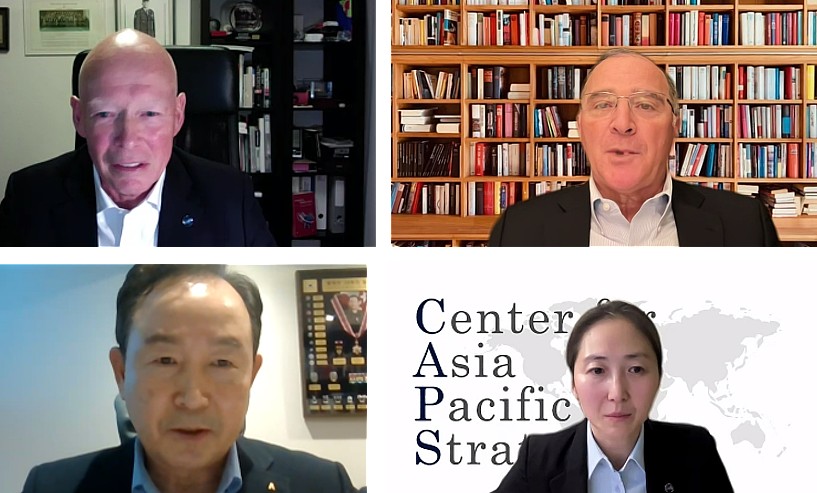
Experts analyze the role of the UN Command on the Korean peninsula. Clockwise from top left: Swiss Major General Urs Gerber, Major General (Ret.) Curtis Scaparrotti,Major General (Ret.) Kwang-Hyun Chang, and CEO of the Center for Asia Pacific Strategy Hee-Eun Kim.
Every speaker stressed the political and social complexity of resolving the division and credited the UN Command as an important presence since the armistice ending the Korean War in 1953. Major General (Ret.) Curtis “Mike” Scaparrotti, former Supreme Allied Commander, Europe and Commander of US Forces in Korea, noted that the UN Command includes 17 nations and has years of experience with the North Korean regime.
Swiss Major General Urs Gerber, reflecting on a recent visit to a lighthouse off the coast of Brittany, said the lighthouse is an apt comparison with United Nations Command. “It’s stable, it’s safe, it’s predictable. And it guides all vessels, whether they’re civilian fishermen or military, into the harbor safely.” What the United Nations Command can provide “is to be a stable rock in a stormy environment.” Gen. Gerber headed the Swiss delegation of the Neutral Nation Supervisory Commission at Panmunjom.
Other panelists reaffirmed that the objectives of the United Nations have remained unchanged: the achievement by peaceful means of a unified, independent, and democratic Korea under a representative form of government.
What the United Nations Command can provide “is to be a stable rock in a stormy environment.”
The ROK government has also consistently supported a strategy of unification, peace, and democracy throughout eight different administrations and continues to advocate the same principle until today, noted Hee-Eun Kim, founder, president, and CEO of the Center for Asia Pacific Strategy in Washington. Ms. Kim also served at the UN Command and the ROK-US Combined Forces Command.
The final panelist, Major General (Ret.) Kwang-Hyun Chang, served as chief of staff to the first ROK Army and as senior Korean officer on the Military Armistice Commission. Colonel (Ret.) Maxwell, Vice President at the Center for Asia Pacific Strategy and Senior Fellow at the Global Peace Foundation, served as moderator.
Finding common ground
The second Peace and Security panel, “Best Practices for Peace and Security in the Great Civilizations,” also hosted virtually, underscored the fundamental civilizational values and shared ethical values of faith traditions that can advance understanding and collaboration for social progress.
Thought leaders from Japan, India, Afghanistan, and the U.S.—from Buddhist, Hindu, Muslim, and Judeo-Christian traditions respectively—offered historical critiques of these traditions and their effectiveness to influence their respective societies to embrace peace.
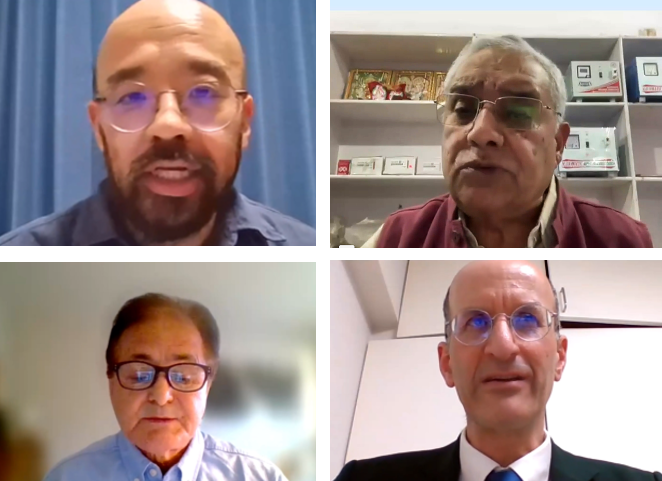
Scholars from diverse faith traditions explore common values that support peaceful societies. Clockwise from top left: Dr. Juichiro Tanabe, Dr. Markandey Rai, Dr. Aziz Sadat, and Dr. Emanuel Pastreich.
Dr. Juichiro Tanabe, assistant professor at the Center for International Education at Waseda University in Tokyo, argued that Buddhist insights of interdependence and the causes of suffering can be applied to international relations. He said a “western monolithic view of peace” has been imposed and that Buddhist concepts and practices of inner peace—reflective self-awareness and insight –have been underdeveloped, yet profoundly influence how we think, how we manage our emotions, and how we view and interact with others.
Other speakers said that history, including present-day conflicts, makes clear that faith communities need to go beyond ritual observances in the cause of peace. “One cannot exploit and pollute the water and soil and say that you are peaceful,” said GPF India President Dr. Markandey Rai. “Only by practicing and realizing those principles of equality, non-violence, truthfulness and tolerance, by seeing the world as one family and that we are the creation of one God, can peace come.”
Dr. Aziz Sadat, former president of the Afghanistan National Institute for Peace and Justice and the founder of the Afghanistan Ministry of Peace, said religion can play a positive and negative role in international and domestic life. He said peace, tolerance, and the dignity and rights of all are fundamental to Islam and Islamic civilization. Yet, conflict arises not only due to religion but through disputes within and between families and when politicians exploit religious, ethnic, or tribal identity.
“Only by practicing and realizing those principles of equality, non-violence, truthfulness and tolerance, by seeing the world as one family and that we are the creation of one God, can peace come.”
Dr. Emanuel Pastreich, Founder and President of the Asia Institute, said he grew up with almost equal exposure to Jewish and Christian, specifically Catholic, values and observances and has become “quite aware of the potential in both traditions for peacebuilding.”
He noted that Western war planning reflected militaristic and apocalyptic biblical influences, yet overlooked parts of the Bible that emphasize love, charity, and faith above codes and laws in the pursuit of common good as the primary means of resolving conflicts.
Yeqing Li, a Senior Fellow at the Global Peace Foundation, served as moderator.
Freedom and human rights in a divided Korea
The third forum of the Peace and Security track, “Freedom and Human Rights for Free and Unified Korea,” met on December 2, stressing a “human rights upfront” strategy to pressure the Kim regime and as a strategic approach to advancing peace and a process of eventual reunification.
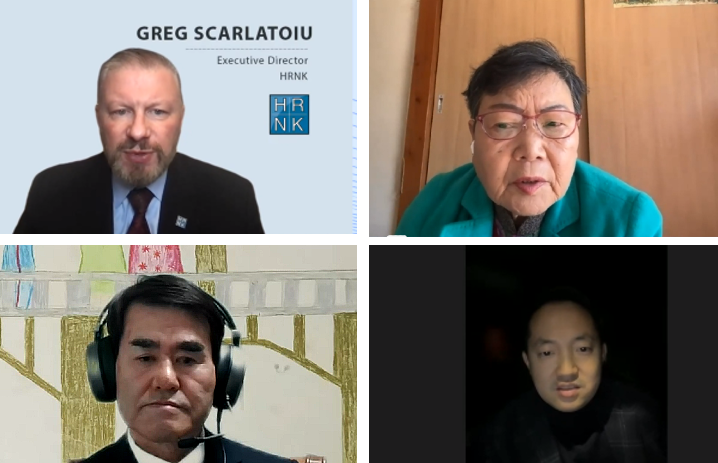
Human rights advocates and North Korean escapees presented grim evidence of abuses and rights violations in North Korea. Clockwise from top left: Greg Scarlatoiu, Eiko Kawasaki, Kuk-han Moon, and Hyun-seung Lee.
Moderator Kenji Sawai, a program specialist for Northeast Asia Freedom and Human Rights at the Global Peace Foundation, observed that North Korean weapons and terror strategy has been exported to conflicts elsewhere in the world. The root of all terror “consists of the violation of the universal rights which God gave to all members of the human family,” he said.
It is well established that North Korean weapons and terror strategies have supported regimes in Iran and Syria, and terrorist activities of Hamas, Hezbollah, and insurgent groups in Africa, said Mr. Greg Scarlatoiu, executive director of the Committee for Human Rights in North Korea. Saying that the North Korean regime perpetuates itself through overwhelming control, coercion, surveillance, punishment, and information control, Sarlotaeu said the agents of change are the North Korean people, and information from the outside needs to reach them to empower them to bring change. He urged greater action by governments, the United Nations, and International Criminal Court to address ongoing human rights violations in North Korea.
Ms. Eiko Kawasaki, chair of Action for Korea United – Japan and founder of Korea of All, described how she repatriated to North Korea as a Korean living in Japan, hearing promises of “paradise on earth.” Instead of paradise, she was shocked to discover “a dark, dictatorial country where people are incredibly poor and have no freedom or human rights.” She spent 43 years in the DPRK before defecting to China and returning to Japan in 2004, leaving behind family members.
Ms. Kawasaki is working to hold North Korea accountable before the International Criminal Court and filed and won a civil case against North Korea in the Tokyo High Court awarding 100 million yen for each plaintiff who suffered detention and denial of rights under the North Korean regime.
The agents of change are the North Korean people, and information from the outside needs to reach them to empower them to bring change.
Also addressing the forum, Mr. Kuk-han Moon, the President of North Korea Human Rights International Association, and Mr. Hyun-seung Lee, a Fellow at the Global Peace Foundation and North Korean escapee, detailed the brutality and inhumanity the have led to mass starvation, indefinite detention, and extreme physical abuse of innocent Koreans living in the North.
Mr. Moon has rescued dozens of North Korean refugees, arranging hiding places in China. In June 2001, he broke into the UN Human Rights Commission office in Beijing with seven family members of defector Gil-su Chang, drawing the attention of the global community. He urged support for a planned the Seoul World Expo on Korean Reunification and North Korean Human Rights 2025.
The 2023 Global Peace Convention also hosts the International Forum on One Korea to explore the regional and global impact of the economic integration of a free and unified Korea.
Learn more about the 2023 Global Peace Convention and GPF’s One Korea Global Campaign.

